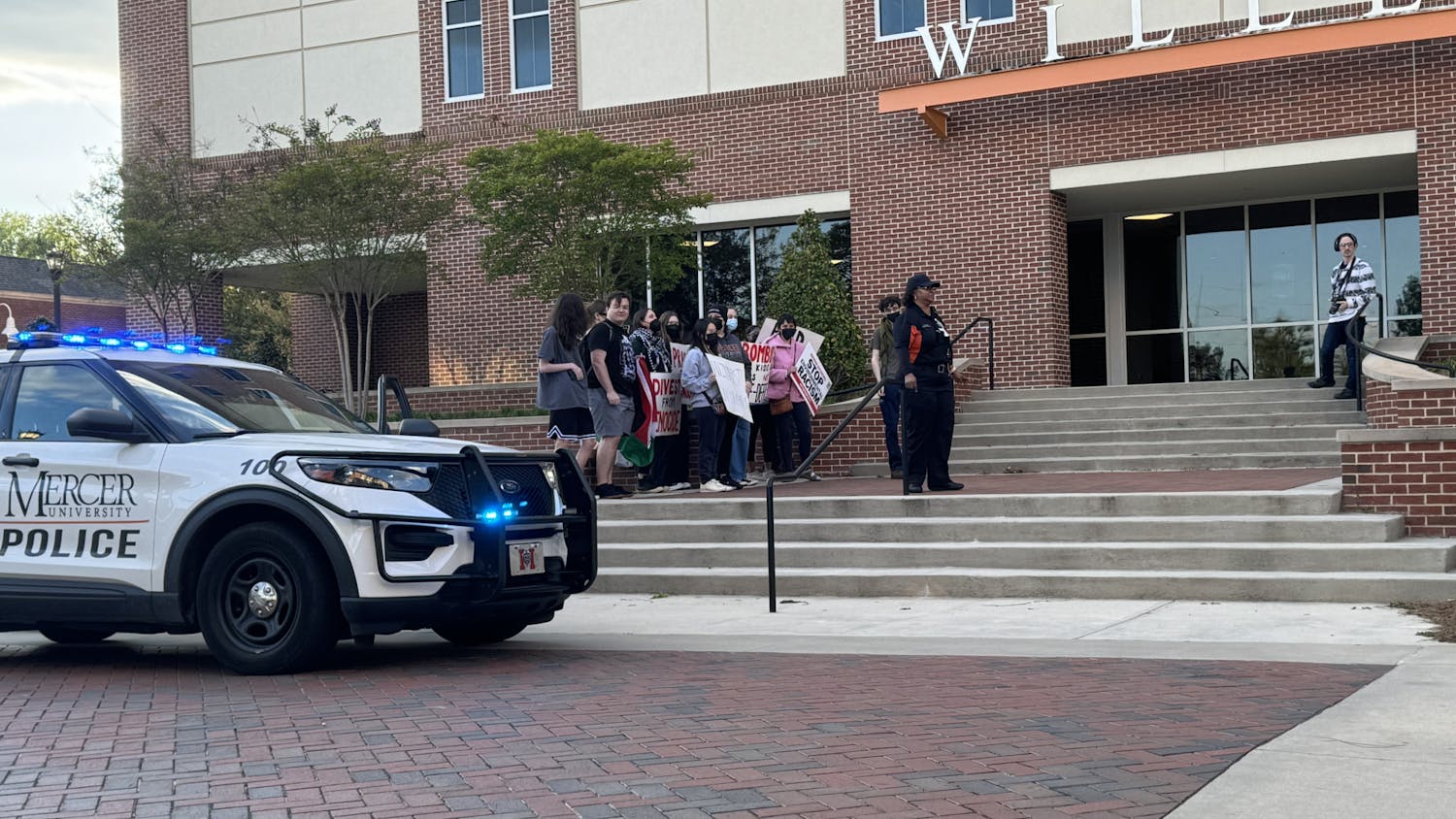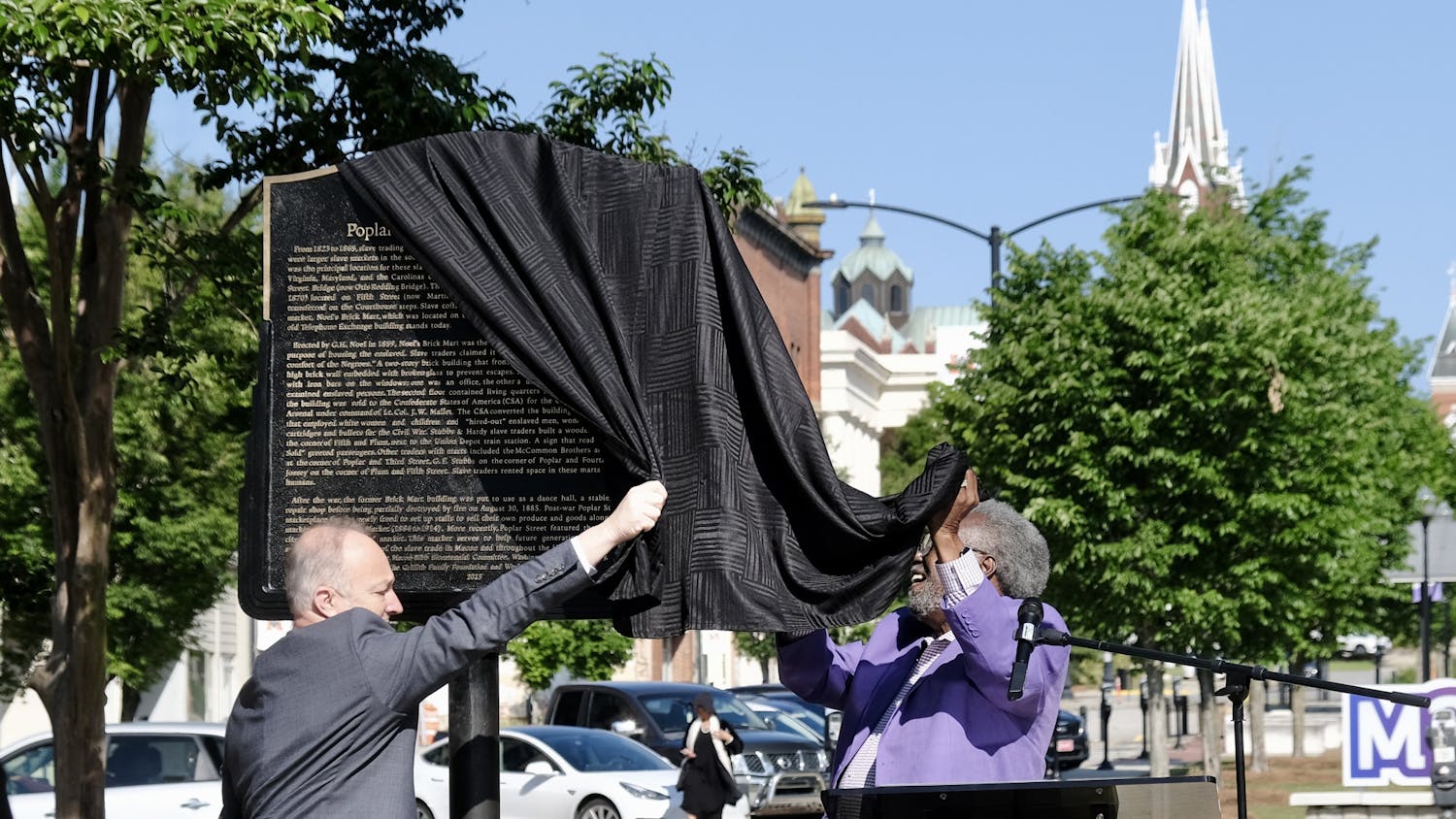A new organization on Mercer’s campus, Students for Liberty, held a debate on abortion Nov. 14 in Willingham Auditorium. The moderator, group founder Christian Watson, allowed two students, Madison Moore on the pro-life side and Ana Muntean on the pro-choice side, to debate their perspectives.
Moore said in an opening statement that she believes life begins at conception and that economic disparities, which often play a role in women’s decisions to terminate a pregnancy, should be addressed instead so women are not faced with this choice to begin with.
“I decided to do this debate because I wanted to challenge students to think about an alternate view that they may have not been exposed to before,” Moore said.
Muntean explored topics such as public warfare, domestic violence and bodily autonomy in her argument in support of legal abortion.
“This event is not about who is right and who is wrong, but it’s more about being able to listen to another person’s ideas and seeing things from their viewpoint,” Muntean said.
Freshman student Madison Wright said she attended the event because it was a space for students to converse about a controversial topic and form their own stances.
“This event was professionally heated, meaning no one said anything irrational out of anger and were respectful of other people’s ideas,” she said.
One of the main arguments that Moore used in her rebuttal to the pro-choice opening statement was that racial disparities are the main reason why women have abortions.
“Racial disparities and economic inequality is the main reason why most women get abortions and it is the inequality that needs to be fixed, not the murder of potential human lives,” she said.
Muntean agreed about the causes of abortion, but said she doesn't believe that the overarching issue can be tackled easily. She also focused on bodily autonomy and how it interplays with the problem of racial inequality.
“It is statistically proven that women of color are more likely to have an abortion due to their socioeconomic status, but having a child may potentially keep them from growing or reaching their potential goals,” she said.
Watson, the moderator, took turns asking each candidate a question that opposed their stance on abortion to encourage reflecting on the opposing viewpoint.
Watson asked Moore, “Are there any circumstances where abortion is permissible?”
She said abortion may be acceptable if the mother’s life is at risk, such as in the case of an ectopic pregnancy, when a fertilized egg gets stuck when it is going to the uterus and damages the fallopian tube, causing intense pain and bleeding.
Watson also asked Muntean a question that opposed her stance
“At what stage of pregnancy is it unacceptable to have an abortion?” he asked.
Muntean said that it is not acceptable to have an abortion after 26 weeks of pregnancy unless the mother is in physical danger.
Both debaters agreed on the reasons that women seek abortions and shared similar concerns over ectopic pregnancy and other maternal health risks. It is this understanding of one another’s views that freshman student, Jasmine Mujawar, found most interesting about the debate.
“This event gave everyone a chance to voice their opinions without having people simply trash the other person’s perspective, which allows for interesting conversation and understanding,” she said.
New student organization hosts formal debate on topic of abortion to encourage understanding

Christian Watson, campus coordinator of new organization Students for Liberty.




